Bhutan has been on a path of moderate development since the second half of the 1980s, with a keen eye on preserving its cultural roots and national identity. Precisely in order to preserve its precious traditions, the model of tourism developed by the institutions is based on sustainability and is oriented towards the promotion of good practices through an ecological approach, with a focus on social and economically sustainable, for the benefit of the population. We at Conscious Journeys, always promoters of conscious tourism, organize tours in this splendid country taking into account these principles that are the cornerstones on which we base our operations.
TRAVEL TO BHUTAN: DOCUMENTS REQUIRED
To enter Bhutan, it is essential to be in possession of a valid passport with six months remaining from entry into the country. You also need a compulsory visa, issued by the state capital, according to precise procedures, which we will describe in detail in a dedicated article. In any case Conscious Journeys can always provide you with all the necessary information at any time, upon request.
WARNINGS ON EXPORT
Bhutan has very strict regulations on the export of antiques or valuable jewellery. For this reason it is advisable to inquire with the local authorities to avoid problems at customs for both new and used objects and obtain a receipt that certifies the purchase in authorized shops.
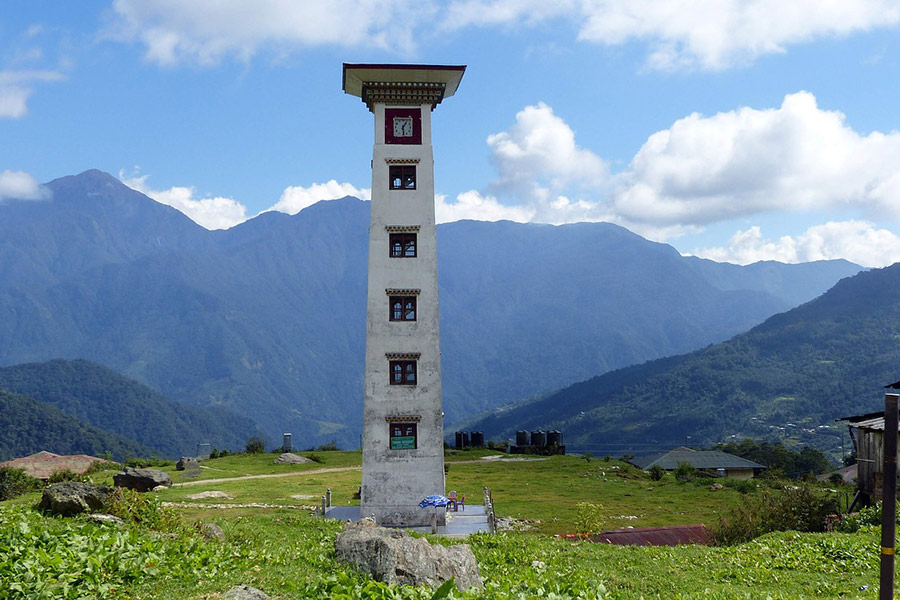
TRAVEL SAFELY IN BHUTAN: TIPS ON SITE SAFETY
Travel safety is a concern for many countries, which have to deal with petty crime and potentially dangerous situations. This does not apply to Bhutan, which is one of the safest countries in the world for travellers.
The crime rate is very low and mainly concentrated in the larger cities. While visiting the country, you will hardly have the perception of such problems. Bhutan is therefore a country where you can travel in peace. Obviously it is advisable not to flaunt valuables or be careless in order not to create potentially critical situations, but as we know, this is just a matter of common sense.
PLACES TO VISIT WITH ATTENTION
The only area of the country to visit with attention is the town of Puentsholing, on the border between India and Bhutan. In this place people from both countries trade, and it is possible that episodes of crime may occur, even if, in terms of seriousness, they would not even compare with crime in our country.
There are also no reports of thefts or other problems when staying in hotels, but in any case, it is better to take a few small precautions in the name of common sense. If you are travelling by car, when you get out, make sure you close the windows and the trunk each time.
BHUTAN: TRAVEL SAFETY TIPS FOR WOMEN
In Bhutan, women are held in high esteem and have the same rights as men. Even the social rule, based on matriarchy, sees daughters exercising the right to inherit property on an equal footing with sons. For this reason, women travelling alone in the country will not have any particular difficulties.
However, one thing should be emphasised: according to the local culture, there are no restrictions for occasional liaisons with female tourists, i.e. even if these are not usual circumstances, they can still occur. Should this happen, it is sufficient to politely decline any attempt to approach them in order to avoid uncomfortable or embarrassing situations (even with guides).
TRAVELLING SAFELY IN BHUTAN: CONTACT DETAILS IN CASE OF NEED
In Bhutan, you can refer in case of need to the guides who are accompanying you on your trip or to the assistance numbers provided before you leave. You can also contact the local police, who can be reached on the single number 100, which is valid throughout the country.
In the event of theft or a road accident, it is advisable to contact your insurance company via the international support number for information on how to behave. Please note that this advice is of paramount importance, as ignoring it could mean losing your right to assistance and compensation.
Therefore, do not neglect this aspect and make sure that you have international roaming and sufficient credit on your mobile phone to make any necessary calls.
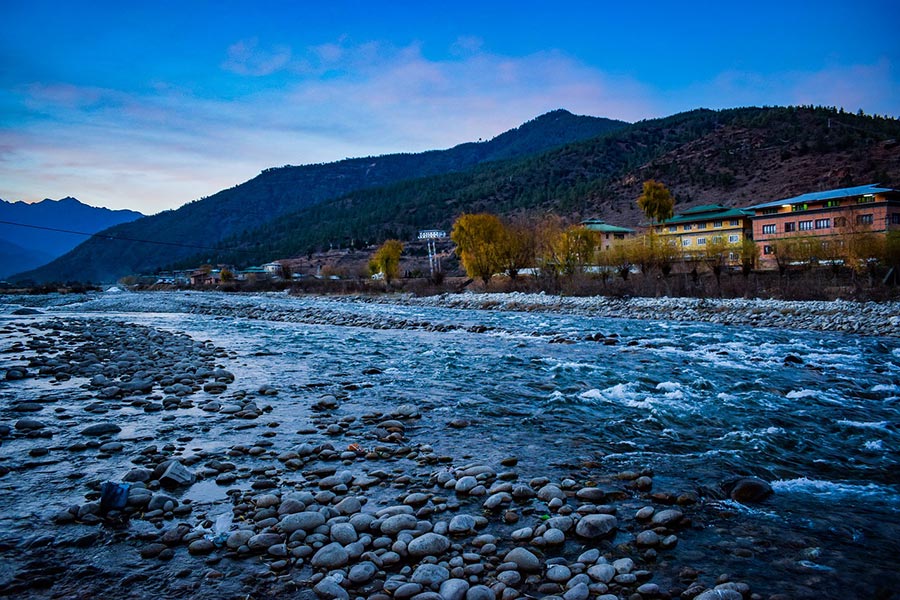
TRAVELLING SAFELY IN BHUTAN: GEOLOGICAL RISKS AND NATURAL DISASTERS
Bhutan is a country located in a rather seismically active area. The particular morphological conformation of the mountainous terrain and the critical geological conditions are the main causes of the country’s environmental problems. Although the seismic risk has been moderate over the years, it still has a significant impact on homes and structures that are unfortunately not up to standard.
AREAS TO BE VISITED WITH CAUTION
The eastern area of Yangtse and the neighbouring areas near Haa, in the extreme west of the country, have strong seismic connotations, as does the region of Dagana-Chhukha-Tsira Ng, located in the central-southern area of the country.
As for the eastern and southern parts of the country, there may be a risk of flooding.
TIPS FOR SAFE TRAVEL IN BHUTAN
Here are the basic precautions for travellers who choose Bhutan as their destination:
- adopt the simple practical precautions typical of any trip, to avoid common inconveniences;
- if you intend to visit the Buddhist monasteries located in the northern part of Thimphu, towards the Chinese border, or if you want to go trekking in these areas, you need to obtain special permits issued by the competent authorities;
- adopt appropriate clothing both during religious festivals and when visiting temples.
IMPORTANT REGULATIONS AND LAWS
Both the use and distribution of drugs (regardless of whether they are soft or hard drugs) are severely punished in Bhutan.
The purchase or sale of tobacco is also prohibited in Bhutan. Travellers are allowed to import a maximum of 200 cigarettes into the country, subject to payment of a 200% tax.
Remember that if you are checked by the police, you must show the receipt you were given at customs to avoid being accused of smuggling, which carries a penalty of up to three years’ imprisonment.
Remember that smoking is prohibited in any public place in Bhutan, including hotels.
Finally, the laws on child abuse and violence are very strict and these offences will be prosecuted even when you return to your country of origin. It is therefore advisable to avoid any gestures or attitudes that could give rise to misunderstandings of this kind.
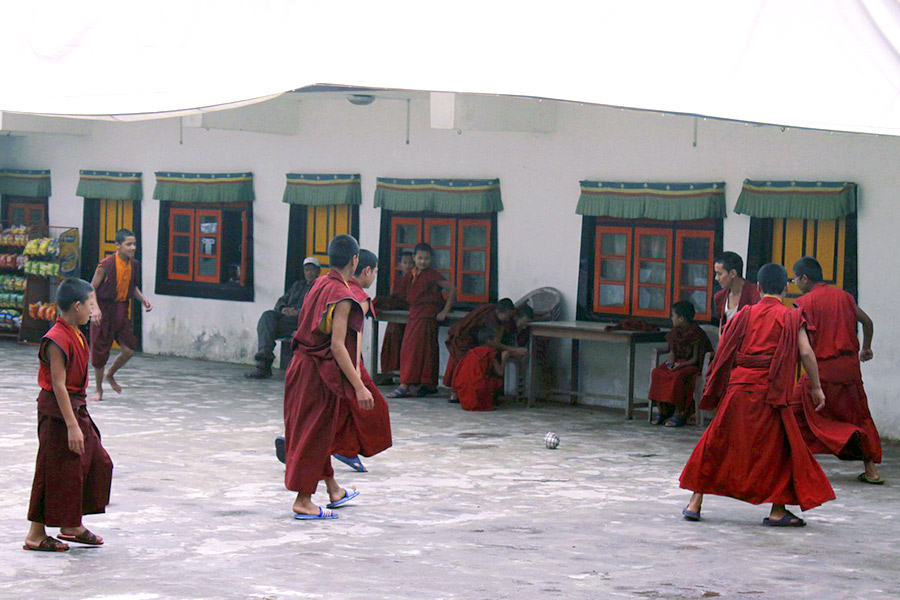
HEALTH SITUATION IN BHUTAN
The quality of health facilities in Bhutan is good and, at present, there are no reports of health problems or epidemics of endemic diseases.
However, we provide below a series of useful indications for safe travel in Bhutan also in terms of health.
HEALTH SAFETY TIPS IN BHUTAN
As a preventive measure, those travelling to such locations are advised to:
- visit your doctor in advance and consider vaccinations (or booster shots) for typhoid, rabies, meningitis, tuberculosis, cholera and hepatitis A;
- always drink purified water or bottled drinks only, to be opened personally and never add ice;
- do not consume raw food;
- if you decide to go trekking in mountainous areas, be sure to monitor your physical condition because you may be suffering from a condition called AMS (Acute Mountain Sickness), more commonly known as ‘mountain sickness’, which causes discomfort due to high altitudes and can cause hypoxia.
It is recommended that you take out personal insurance before travelling, which includes coverage for both medical expenses and a possible return trip by equipped medical plane.
WARNINGS ON PREVENTIVE DRUGS AND PROPHYLAXIS
If you have decided to take part in high mountain excursions, as specified in the previous paragraph, a thorough examination by your doctor is necessary in order to assess your general state of health and, specifically, to rule out the presence of pathologies that could cause discomfort with altitude such as respiratory problems, metabolic disorders, diabetes, heart disease and pregnancy.
If any of these conditions are present, the advice is to pack your usual drugs. Your doctor will decide whether to prescribe a diuretic a few days before your departure. People suffering from high blood pressure, for example, can safely reach high altitudes by taking their usual medication.
In any case, the risk of altitude sickness is quite remote. Some more specific information will be provided by your doctor, but consider that this discomfort lasts very little time, affects only a small percentage of tourists and is independent of age. It usually presents itself with a slight headache, some hints of nausea, tiredness and insomnia. It can occur from 3000 metres upwards, in places where oxygen is more rarefied. Because of the dynamics involved in pressure, blood and oxygen flow in the pulmonary alveoli, we must pay more attention to where we spend the night than day. Acclimatisation, therefore, is very important, so that the body gets used to the new condition, and this can take a few hours or two days at the most.
Remember that altitude sickness more often occurs at night, when oxygen saturation decreases with sleep, so make sure you do not stay overnight on the peaks. Also avoid prolonged exertion during the first few days of the hike, do not consume alcohol or sleeping pills and drink to keep hydrated. Eat in moderation, preferably taking liquid soups and carbohydrates.
As a rule, some countries with high altitudes suggest vaccinations against typhoid and hepatitis, diseases for which it is important to diagnose the symptoms correctly so as not to confuse them with the more classic tourist ‘dysentery’. As for malaria, an altitude of 2000 metres above sea level is no longer a problem.
Vaccination against yellow fever is always compulsory if the traveller comes from countries at risk or has had a stopover, even for only 12 hours, at one of the airports indicated. You should always inform yourself of any changes in the rules for this eventuality.
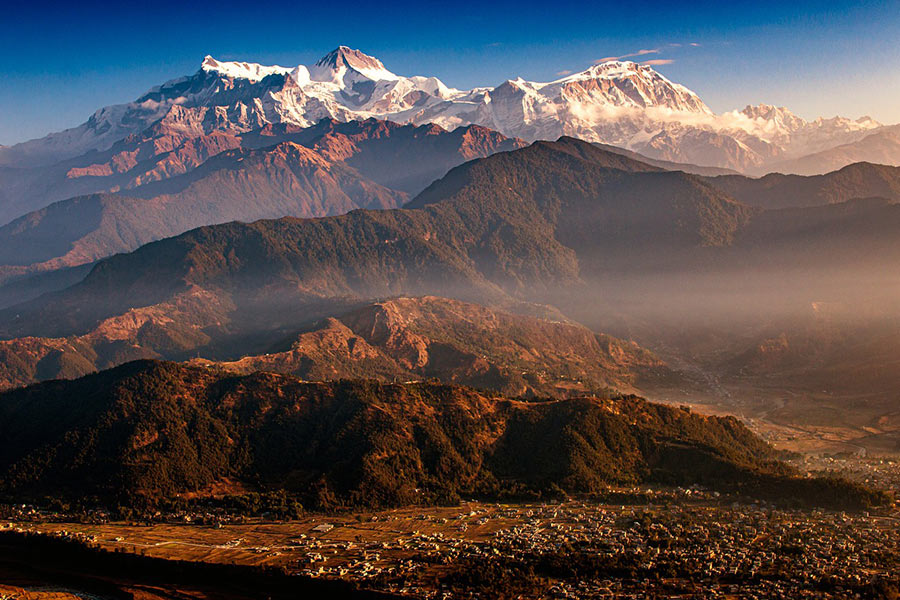
SOME FINAL TIPS TO REMEMBER FOR A SAFE HOLIDAY IN BHUTAN
As a rule, both hotels and other accommodation facilities in Bhutan are equipped with Wi-Fi internet access, telephone, heating, hot water, satellite TV and various appliances. Despite being well equipped, they are clearly not up to the standard of international hotels, but they are hospitable and characterised by local style.
You can conveniently use your credit cards at the hotels and ATMs (both MasterCard and Visa) and you can also purchase a local phone SIM card should you need it.
THE CURRENCY OF BHUTAN
Bhutan’s currency is called Ngultrum and its value is calculated on the basis of the Indian rupee, which is also used in Bhutan. Bhutan does not accept banknotes in excess of 100 rupees. For this reason, we advise travellers to arrange for the necessary cash in good time. We also remind you that you will not be able to buy Ngultrum currency before entering the country. However, you can change your euros at the airport in Paro or at the larger hotels in both Thimphu and Paro. Please take along sufficient amounts of Ngultrum as you will not always have access to an exchange office during your trip.
SOME TIPS ON THE LOCAL CULTURE OF BHUTAN
To facilitate your contact with Bhutanese society and culture, it may be useful to learn some local terminology and customs before your trip.
If you want to greet local people properly, for example, you can express yourself by saying ‘Kuzuzangpola’, which means ‘good health’. This expression can be used throughout the day, from sunrise to sunset.
Members of the royal family are distinguished by the words Dasho (male) and Ashi (female). Ministers and their deputies are recognisable by the fact that they wear an orange scarf slung over their shoulders, with a long decorated sword which they carry on their right hip.
Senior civil service graduates are recognisable because they wear a red scarf. Younger monks are called ‘Gelong’, while an older monk is called ‘Lopon’ and the monk in charge of the monastery or temple is called ‘Lam’ with a suffix ‘Je Khempo’. Nuns are called ‘Anims’ and lay people are called ‘Gomchen’.
Photographs can be taken of all natural beauty, but are forbidden in religious places and institutional buildings.


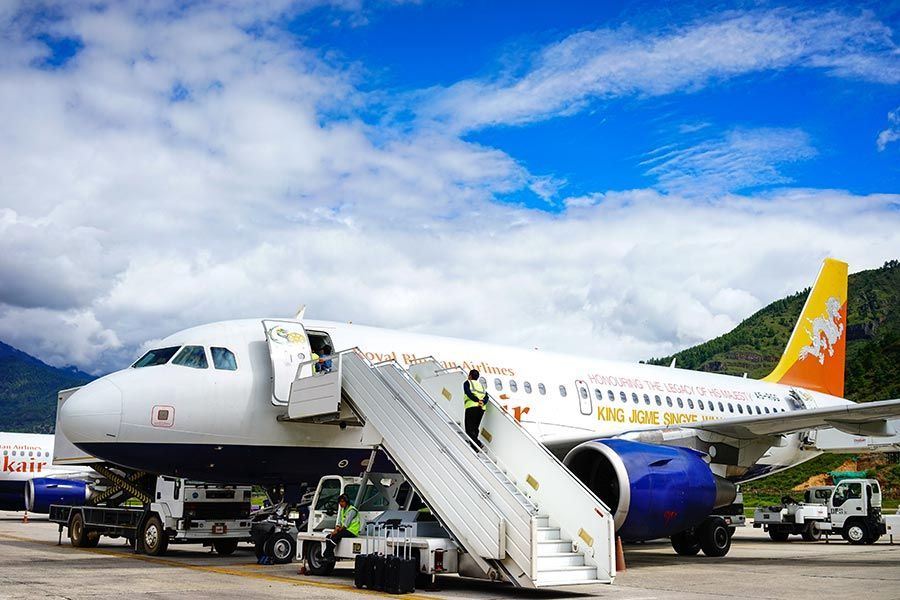
Lascia un Commento